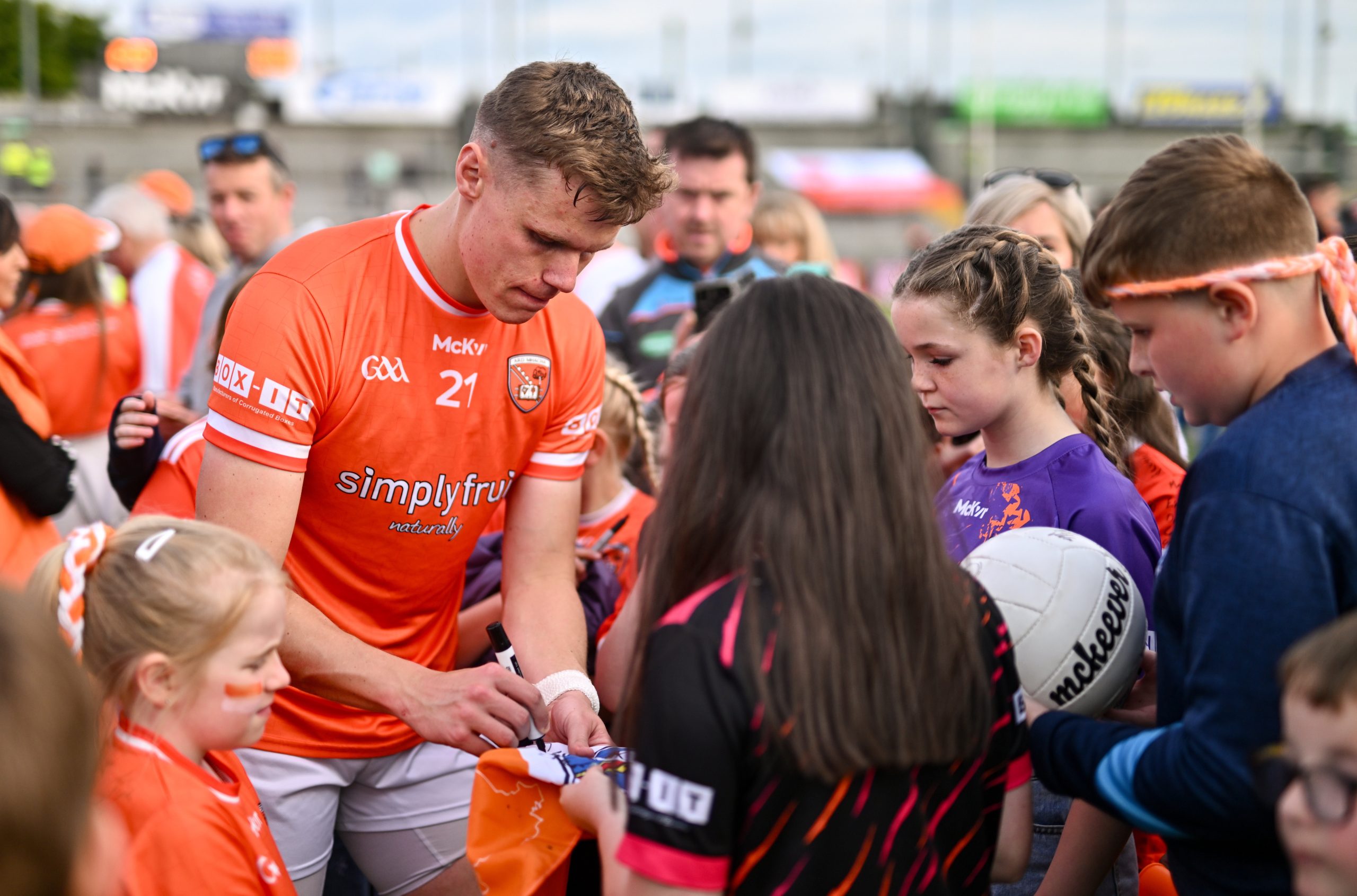AFTER Armagh’s hugely impressive win over Derry in Celtic Park last weekend, Oisin O’Neill and brother Rian spoke about the impact the Armagh bench has been making this year. When Conleith Gilligan was appointed coach, the first thing he did was forensically examine the statistics and impact that the subs were having on games,. He felt the return and the impact could be a lot greater. It has been very evident this year that the likes of Oisin O’Neill, Jason Duffy, Aidan Nugent, to name a few, are having major impacts in all the games they have entered.
For me, one of the stand out traits of this Armagh side is the harmony in the camp. These are a bunch of players who really believe in their manager and respect the process and huge credit must go to Kieran McGeeney and his backroom team.
All team sports around the world now view substitutions as vitally important. The modern rugby game has changed to the extent that some substitutions are actually pre-planned in advance and players know the time introduced and the role they have. Also some substitutions in rugby are based on physiological stats through GPS monitoring and indeed some GAA teams, despite the fact I don’t agree with it, have now adopted the same policy of making changes based on GPS data. The validity of that is certainly open to debate.
One of the greatest substitutes in any sport was Ole Gunnar Solskjaer. Solskjaer was interviewed a number of years ago and asked what made him such a good impact sub and why he always seemed happy. His response was simple but interesting, “I sit on the bench and I study the game, I do not take my eye off the action. Instead of trying to be the best on the team, I just tried to be the best for the team.”
I wonder how many modern GAA players have the same mentality, whether it is club or county. Mind-set and attitude has an awful lot to do with substitutes and their effectiveness.There are some ways in which we as coaches can help keep substitutes happy, involved and motivated.
1. Communication is vital
Every player must be treated equally, whether it’s No 2 or No 22 on the panel and your message must be consistent. Make time to talk to players one on one, particularly those players who maybe haven’t featured in a lot of games, before and after games and training. Inform them of their role, give them something to focus on in training, make your instructions clear, accurate, don’t waffle and be sure to include everyone.
2. Keep players valued and involved during training
Don’t use substitutes to stand behind the goal kicking balls out during training. Players can develop negative mind-sets if they’re not involved and at club level there can be a tendency just to use your stronger players and have the substitutes at the other end in a token gesture game. Players will see through this. Players aren’t stupid and know when they have been excluded. Every player should be valued and made feel a full part of every session. Even when doing some structured play, no player should be left to stand out. In fact when playing in house games I particularly like to spend more time coaching the possibles rather than the probables.
3. Keep substitutes actively engaged during games
On regular occasions subs should perform two or three minutes of game-related dynamic movements with and without a ball on the sideline. Short, sharp intense movements will keep the player physically and mentally prepared to enter the game. A structured five or six minute dynamic session at half time will also be beneficial to the substitutes. These small subtle changes could provide you with a much more focused and game ready bench!
Interestingly, in a recent study of substitutes experience in professional soccer by two universities in England the main results were as follows: Players had low self esteem, disliked substitute status, felt segregated, poor coach communication, inactivity and reduced motivation levels.
Receive quality journalism wherever you are, on any device. Keep up to date from the comfort of your own home with a digital subscription.
Any time | Any place | Anywhere












